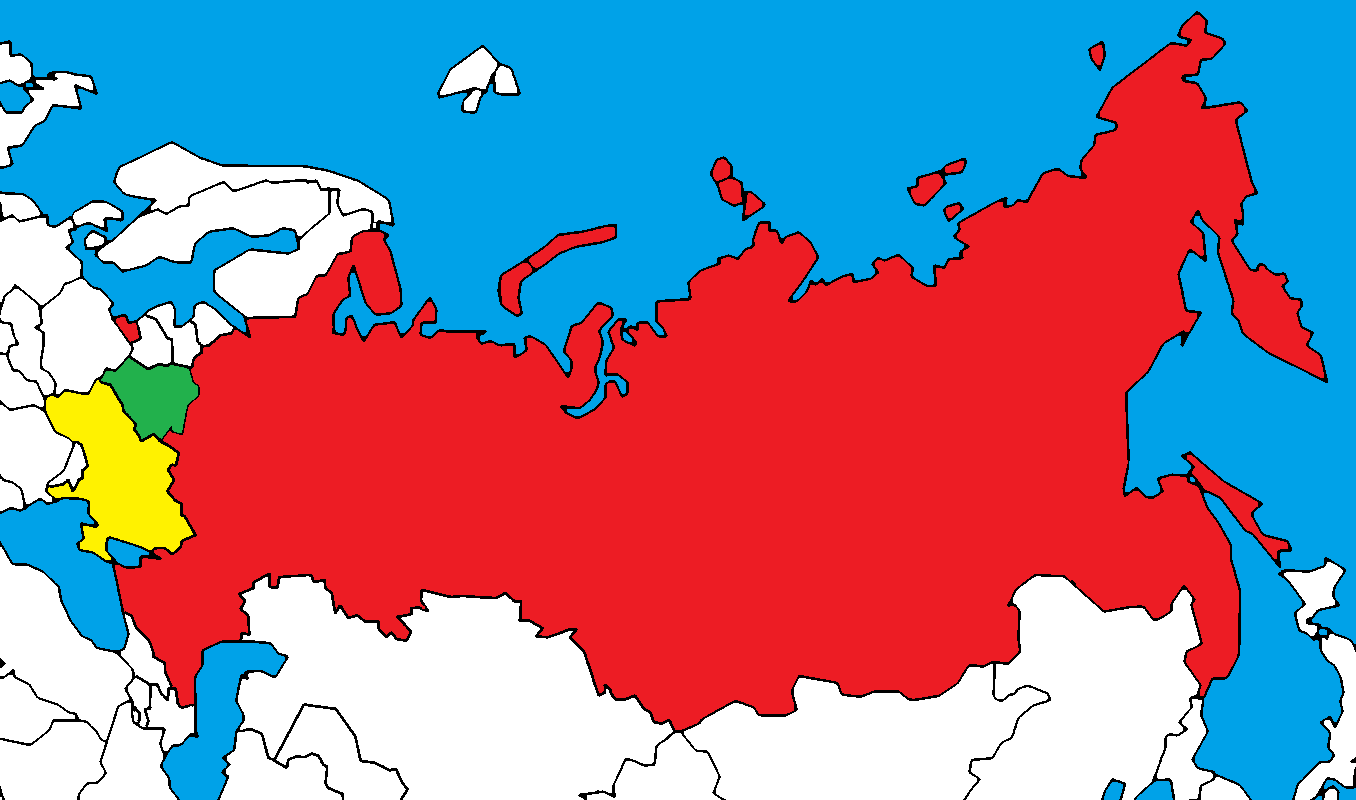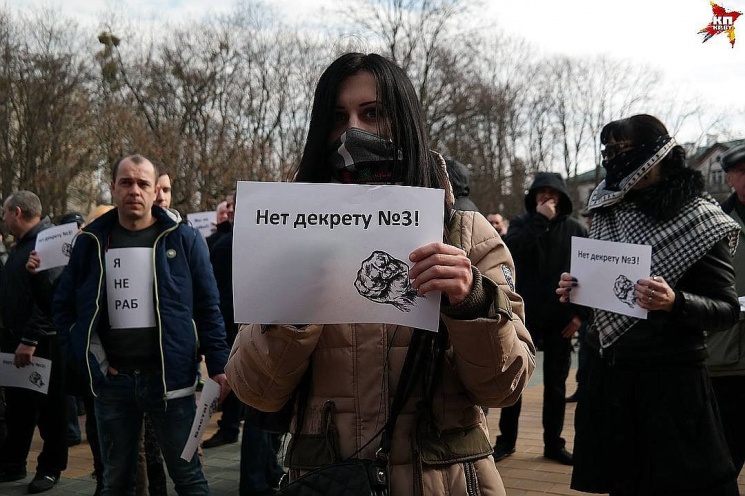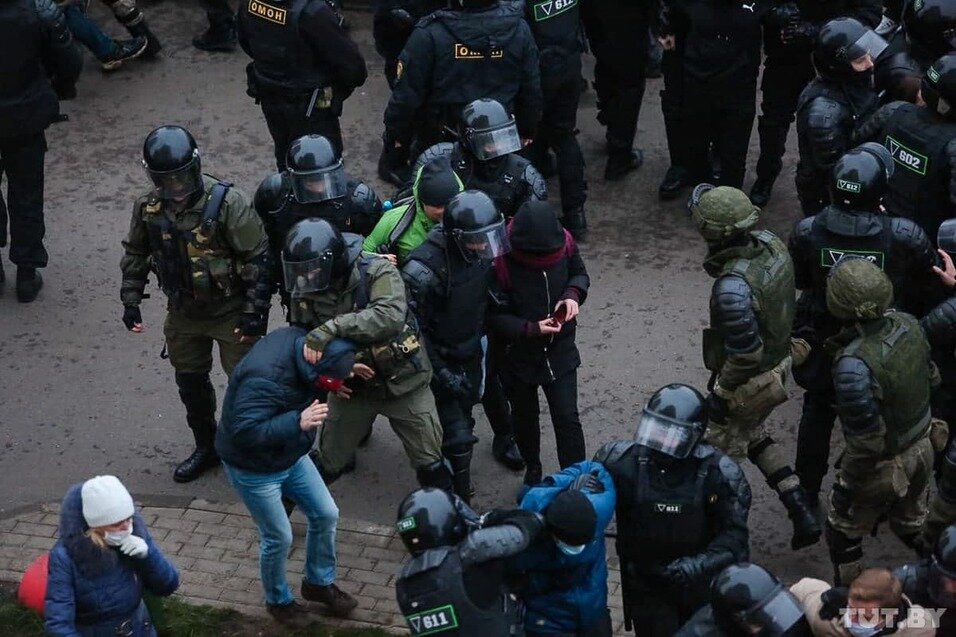Most people see annexation as something that occurs once and for all at a particular time; but in fact, it can be a creeping process in which one country gradually takes over another which like the frog in warming water doesn’t recognize what has happened until too late – and that is exactly what is happening in Belarus today, Rasa Juknevičienė says.
The former Lithuanian defense minister who is now deputy chairman of her country’s parliamentary committee on national security says it is critically important to understand annexation as a process rather than a one-time event if one is to have any chance of blocking it.
Moreover, she suggests, Putin has a model from the Soviet past. During the Cold War, the USSR occupied Eastern Europe and reduced the sovereignty of the countries in its bloc to the point that it could use them for various purposes. They weren’t annexed formally, but they were not fully sovereign either.
“I very well remember those times when I was still young,” Juknevičienė continues. “I grew up in the Soviet Union, in occupied Lithuania, and we understand what role satellite states like Poland and the others who were supposedly sovereign states played in international platforms. They were simply used by the Soviet Union.”
One is compelled now to ask whether it is possible that Alyaksandr Lukashenka has in his hand a sufficient dollop of sovereignty to redirect the situation toward Belarusian interests and not the interests of the Kremlin,” Juknevičienė says. If she had to give a “yes” or “no” answer, she continues, she would say “’no‘ it is already late.”
“But all the same, somewhere in the depth of my heart, I hope or want to hope that sometime at night your president [Lukashenka] will wake after a dream in which he will see the future of Belarus not in the Kremlin’s embrace. He will see Belarus on the map of Europe together with democratic countries.”
One hopes that will happen, but Lukashenka’s actions increasingly are coordinated with Russia’s in ways that suggest otherwise – and that is a serious matter for Lithuanians. “We do not want new iron curtains with this people, but unfortunately they are now being built and built via the militarization of Belarus.”
A Russian annexation of Belarus is taking place, not yet juridical but political, Juknevičienė says; “and Alyaksandr Lukashenka bears responsibility for the fact that Belarus is only formally a state on the map of Europe.” (emphasis supplied) In reality, she strongly implies, it is already no more an independent state that Moscow’s satellites in the Cold War were.
It didn’t have to be this way, she suggests, and notes that for a long time already she has said that “Belarus is not the last dictatorship in Europe. After the annexation of Crimea, I think, everyone should have seen that the very greatest threat from autocratic, dictatorial, and mafia, if you like, regimes is in the Kremlin.”
That is not to minimize the suffering of the Belarusian people under Lukashenka. He has much to answer for. But she concludes, she bases her approach on the idea that “perhaps we can try to show Lukashenka an alternative if it is not too late. But everything now depends precisely on him.”
Read More:
- Secretly-prepared constitutional changes will open way to Anschluss of Belarus by Putin, Matskevich says
- t’s not just Babich – Russian embassy in Minsk is a subversive organization
- Belarus already under Russian troll attack designed to give Moscow a base for further aggression
- When Moscow talks of ‘deep integration’ of Belarus, it means annexation, Lukashenka says
- Three telling poll results from Belarus
- Lukashenka tells Putin’s new man in Minsk: ‘Belarus will not ever be part of Russia’
- Moscow officials currently preparing for Anschluss of Belarus, Larionov says
- West’s paramount task is to prevent Belarus from being swallowed up by Russia, Melianas says
- Moscow pursuing ‘forced integration’ of Belarus into Russia now, Sivitsky says
- Could Putin’s pseudo-Cossacks on Belarusian border become ‘the little green men’ in Belarus?
- Are Russian oligarchs serving as Putin’s ‘little green men’ in Belarus?
- Fearful of Moscow and his own people, Lukashenka fails to crush pro-Russian march in Minsk on Victory Day




